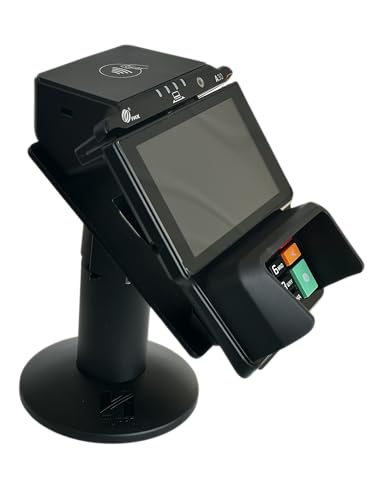
The Environmental Impact of POS Stands and Sustainable Alternatives
In an era where sustainability is at the forefront of business practices, understanding the environmental impact of every component of your operation is crucial. Point of Sale (POS) stands, an essential part of any retail or service environment, are no exception. In this blog post, we’ll explore the environmental impact of traditional POS stands and highlight sustainable alternatives that can help reduce your business’s carbon footprint.
Environmental Impact of Traditional POS Stands
-
Materials and Manufacturing
- Plastic Stands: Many POS stands are made from plastics, which are derived from petroleum. The production of plastics involves significant energy consumption and the release of greenhouse gases.
- Metal Stands: While metal stands are more durable, the mining and processing of metals such as aluminum and steel are also energy-intensive and contribute to environmental degradation.
-
Lifecycle and Durability
- Short Lifespan: Low-quality stands may need to be replaced frequently, leading to increased waste and resource consumption.
- End-of-Life Disposal: Disposing of old or broken POS stands often means they end up in landfills, where plastic can take hundreds of years to decompose and metals can leach harmful substances into the soil and water.
-
Transportation Emissions
- Global Supply Chains: Many POS stands are manufactured overseas and then shipped to various markets, contributing to carbon emissions from transportation.
Sustainable Alternatives for POS Stands
-
Recycled and Recyclable Materials
- Recycled Plastics: Using recycled plastics reduces the demand for virgin materials and helps divert plastic waste from landfills.
- Recyclable Metals: Opting for metals that can be easily recycled at the end of their lifecycle can significantly reduce the environmental impact.
-
Biodegradable and Eco-Friendly Materials
- Bamboo and Wood: These renewable resources are biodegradable and have a lower environmental impact compared to traditional materials. Bamboo, in particular, grows quickly and requires minimal resources.
- Plant-Based Plastics: Innovations in bioplastics, made from renewable plant sources like corn starch, offer a more sustainable option for POS stands.
-
Modular and Long-Lasting Designs
- Durable Construction: Investing in high-quality, durable POS stands reduces the frequency of replacements and waste.
- Modular Components: Stands with interchangeable parts allow for easy repairs and upgrades, extending the product’s lifespan.
-
Local Manufacturing
- Reducing Transportation Emissions: Sourcing POS stands from local manufacturers reduces the carbon footprint associated with shipping and supports the local economy.
- Customized Solutions: Local production can offer more customization options, ensuring that stands meet specific business needs and potentially reducing waste.
Benefits of Sustainable POS Stands
-
Environmental Responsibility
- Reduced Carbon Footprint: Sustainable materials and local sourcing contribute to lower greenhouse gas emissions.
- Minimized Waste: Recyclable and biodegradable materials help reduce the amount of waste ending up in landfills.
-
Brand Image and Customer Loyalty
- Positive Perception: Customers increasingly favor businesses that demonstrate a commitment to sustainability.
- Competitive Advantage: Highlighting your use of eco-friendly POS stands can differentiate your business in a crowded market.
-
Long-Term Cost Savings
- Durability: High-quality sustainable stands may have a higher upfront cost but will likely save money in the long run by reducing the need for frequent replacements.
- Energy Efficiency: Some sustainable materials and manufacturing processes are more energy-efficient, potentially lowering operational costs.
Conclusion
The shift towards sustainability is not just a trend but a necessity for businesses aiming to reduce their environmental impact and appeal to a more eco-conscious customer base. By choosing sustainable alternatives for your POS stands, you can play a part in protecting the environment while also reaping the benefits of improved brand perception and long-term cost savings. As you consider upgrading or replacing your POS stands, remember that the choices you make today will shape the future of your business and the planet.
